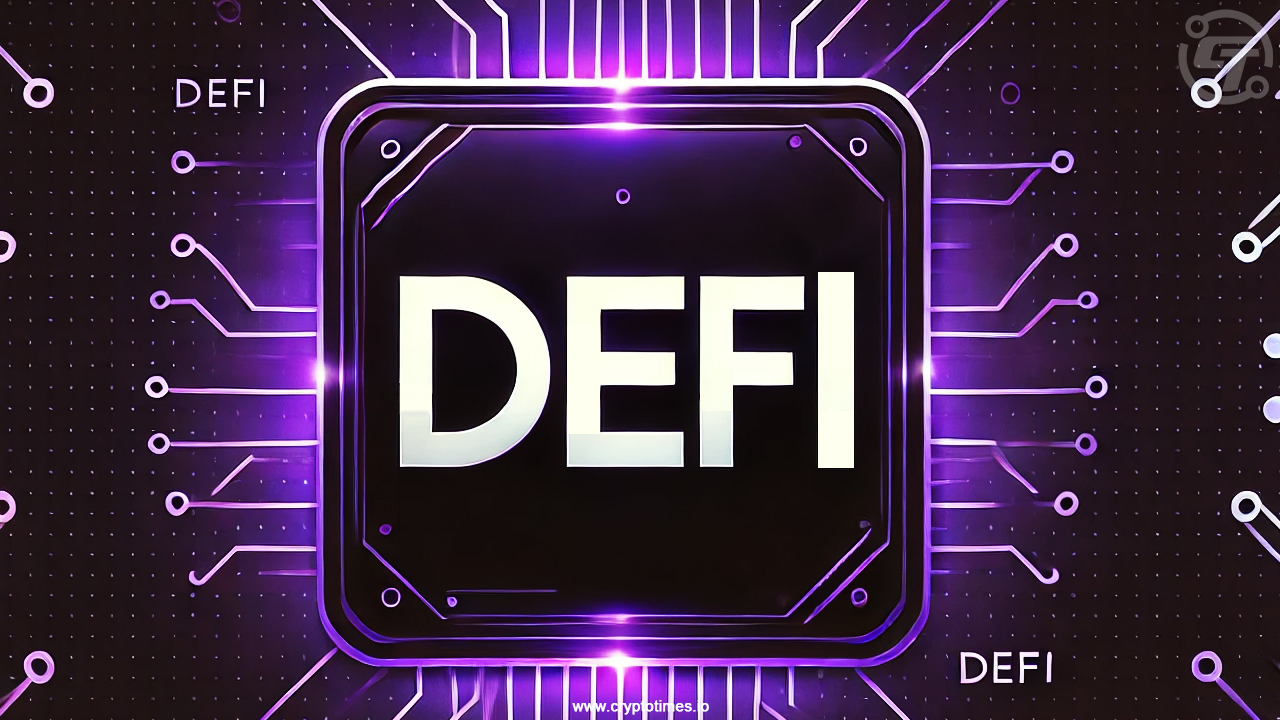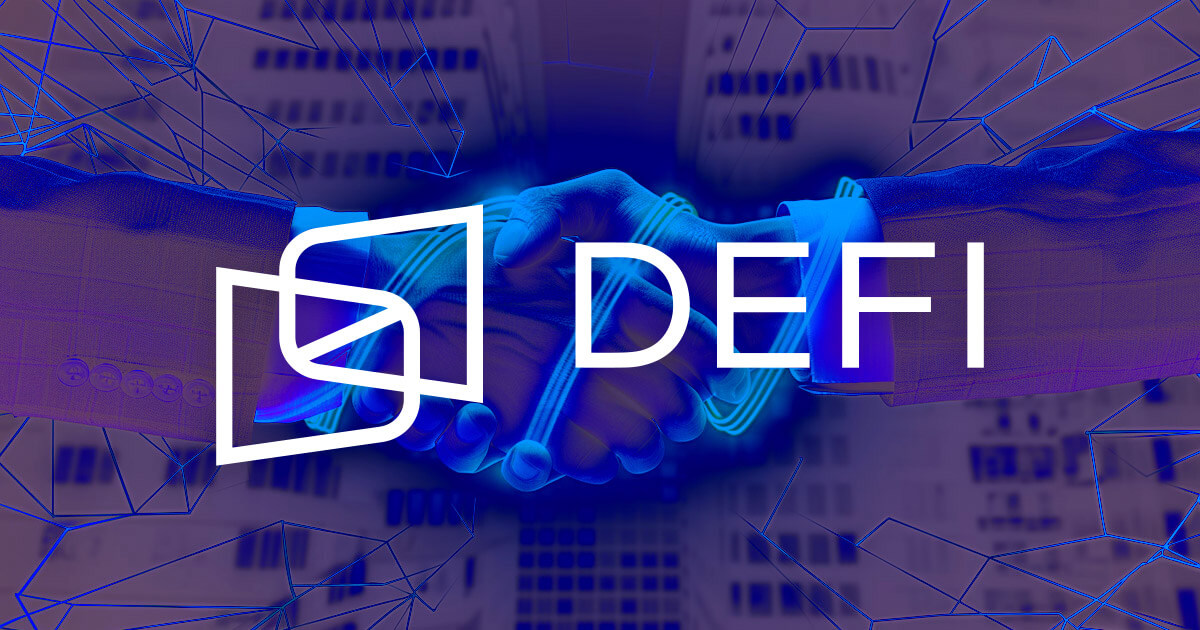DeFi
Building Investor Confidence in DeFi: What Can Protocols Do?

The meteoric pace with which the decentralized finance (DeFi) sector has made breakthroughs has raised alarms among regulators around the world. Caught off guard by the meteoric rise of the DeFi industry, regulators are now scrambling to put new regulatory frameworks in place, unsure to what extent they will be able to exercise control over it.
With the crypto market recently hitting new highs this year, in line with the optimism sparked by the first Bitcoin ETF and the last halving, the regulatory conversation has taken on even more importance. However, given the complexities associated with the DeFi industry, a global regulatory framework is not being considered anytime soon. Therefore, in such a volatile atmosphere, the DeFi sector must come up with self-regulation and out-of-the-box thinking to ensure that investor confidence remains intact in the sector.
Why does DeFi regulation seem complex?
DeFi regulation is a complex topic due to the unique nature of decentralized protocols, which no single entity controls. For more than a hundred years, financial regulation has evolved based on the concept of a trusted intermediary having total authority over each actor in its financial ecosystem.
This centralized entity can be held accountable, providing consumers and businesses with legal recourse if they feel cheated. DeFi replaces these intermediaries with programmable, autonomous smart contracts that are not beholden to anyone. Such a decentralized model presents a unique set of challenges for regulators accustomed to making changes in centralized systems.
Empowering DeFi
Having already mentioned the problem of regulating the DeFi industry, it is also necessary to introduce accountability into this sector. Without any regulations to govern it, the best DeFi protocols can do is rely on existing rules and processes from the traditional financial industry that can help them avoid taking unnecessary risks.
For example, lending protocols could use existing best practices from traditional finance to identify the most suitable borrowers. They can also borrow from existing structures that help streamline the lending process and improve the efficiency of their operations.
How can DeFi protocols use data from traditional markets?
The world’s largest economy, the United States has built an extensive structure and model for securing loans and attracting capital. Credit rating agencies such as S&P Global Ratings, Moody’s and Fitch Group have detailed data that can be used to establish rules regarding who is and is not eligible for borrowing. This data can enable DeFi protocols to make better risk management decisions.
Additionally, the United States has a strong legal system that can be leveraged creatively by DeFi companies, to ensure that their users always have avenues for legal recourse.
Zivoe: an original approach to empowerment
A company that tries to be creative to reassure its users is Zivoéa real-world asset protocol that offers an alternative source of credit to consumers tired of the predatory lending practices of the traditional lending market.
Zivoe is able to provide a more affordable alternative source of credit by providing on-chain loans to consumer lending companies, who can, in turn, offer their customers fiat loans at attractive rates. To manage risk, Zivoe secures the loans it makes to lenders by creating a “special purpose vehicle” or SPV, retaining authority over that entity in case the original lender fails to perform.
This is a new structure that reduces credit risk while optimizing the use of capital. Under this model, Zivoe SPVs can allocate unlent funds to other DeFi protocols to create an additional revenue stream. This means that the capital under Zivoe’s control never sits idle, but rather works to improve the overall health of the protocol.
Zivoe’s initial lending partner is a self-created company called Zinclusivewhich is largely run by the same management team.
Every loan Zivoe makes to Zinclusive is collateralized, and the consumer-focused products created by the latter will be placed in an SPV, which serves as a form of actual collateral. The SPV notably has no interaction with blockchain-derived capital provided by Zivoe’s liquidity providers, but its legal agreements with Zinclusive mean that these on-chain activities are connected to its off-chain assets. These agreements provide in particular that in the event of default by Zinclusive, Zivoe has the power to take control of the SPV concerned and the consumer loan portfolio under its management.
Zivoe’s unique model was conceptualized by a founding team led by the CEO Jay Abbasi and general counsel Kristal Gruevski. Meanwhile, Zivoe’s risk advisor Walt Ramsey he previously helped develop risk management strategies for Lloyd’s Bank, JP Morgan Chase and other financial companies.
Conclusion: DeFi must earn investor trust
Just like traditional finance, there is no guarantee that investors’ DeFi deposits will generate a profitable return. However, an established regulatory framework in the Trad Fi sector has at least ensured that investors have an authority figure they can go to with complaints.
This is where the DeFi industry is lagging behind and it is up to new companies showing creativity to gain the trust of investors. Zivoe is an example of creative thinking where investors are convinced that the dynamic and pioneering new form of financing is trustworthy.
DeFi
Pump.Fun is revolutionizing the Ethereum blockchain in terms of daily revenue

The memecoin launchpad saw the largest daily revenue in all of DeFi over the past 24 hours.
Memecoin launchpad Pump.Fun has recorded the highest gross revenue in all of decentralized finance (DeFi) in the last 24 hours, surpassing even Ethereum.
The platform has raised $867,429 in the past 24 hours, compared to $844,276 for Ethereum, according to DeFiLlama. Solana-based Telegram trading bot Trojan was the third-highest revenue generator of the day, as memecoin infrastructure continues to dominate in DeFi.
Pump.Fun generates $315 million in annualized revenue according to DeFiLlama, and has averaged $906,160 per day over the past week.
Income Ranking – Source: DeFiLlama
The memecoin frenzy of the past few months is behind Pump.fun’s dominance. Solana-based memecoins have been the main drug of choice for on-chain degenerates.
The app allows non-technical users to launch their own tokens in minutes. Users can spend as little as $2 to launch their token and are not required to provide liquidity up front. Pump.Fun allows new tokens to trade along a bonding curve until they reach a set market cap of around $75,000, after which the bonding curve will then be burned on Raydium to create a safe liquidity pool.
Pump.Fun generates revenue through accrued fees. The platform charges a 1% fee on transactions that take place on the platform. Once a token is bonded and burned on Raydium, Pump.fun is no longer able to charge the 1% fee.
Ethereum is the blockchain of the second-largest cryptocurrency, Ether, with a market cap of $395 billion. It powers hundreds of applications and thousands of digital assets, and backs over $60 billion in value in smart contracts.
Ethereum generates revenue when users pay fees, called gas and denominated in ETH, to execute transactions and smart contracts.
DeFi
DeFi technologies will improve trading desk with zero-knowledge proofs

DeFi Technologies, a Canadian company financial technology companyis set to enhance its trading infrastructure through a new partnership with Zero Computing, according to a July 30 statement shared with CryptoSlate.
The collaboration aims to integrate zero-knowledge proof tools to boost operations on the Solana And Ethereum blockchains by optimizing its ability to identify and execute arbitrage opportunities.
Additionally, it will improve the performance of its DeFi Alpha trading desk by enhancing its use of ZK-enabled maximum extractable value (MEV Strategies).
Zero knowledge Proof of concept (ZKP) technology provides an additional layer of encryption to ensure transaction confidentiality and has recently been widely adopted in cryptographic applications.
Optimization of trading strategies
DeFi Technologies plans to use these tools to refine DeFi Alpha’s ability to spot low-risk arbitrage opportunities. The trading desk has already generated nearly $100 million in revenue this year, and this new partnership is expected to further enhance its algorithmic strategies and market analysis capabilities.
Zero Computing technology will integrate ZKP’s advanced features into DeFi Alpha’s infrastructure. This upgrade will streamline trading processes, improve transaction privacy, and increase operational efficiency.
According to DeFi Technologies, these improvements will increase the security and sophistication of DeFi Alpha’s trading strategies.
The collaboration will also advance commercial approaches for ZK-enabled MEVs, a new concept in Motor vehicles which focuses on maximizing value through transaction fees and arbitrage opportunities within block production.
Additionally, DeFi Technologies plans to leverage Zero Computing technology to develop new financial products, such as zero-knowledge index exchange-traded products (ETPs).
Olivier Roussy Newton, CEO of DeFi Technologies, said:
“By integrating their cutting-edge zero-knowledge technology, we not only improve the efficiency and privacy of our transactions, but we also pave the way for innovative trading strategies.”
Extending Verifiable Computing to Solana
According to the release, Zero Computing has created a versatile, chain-agnostic platform for generating zero-knowledge proofs. The platform currently supports Ethereum and Solana, and the company plans to expand compatibility with other blockchains in the future.
The company added that it is at the forefront of introducing verifiable computation to the Solana blockchain, enabling complex computations to be executed off-chain with on-chain verification. This development represents a significant step in the expansion of ZKPs across various blockchain ecosystems.
Mentioned in this article
Latest Alpha Market Report
DeFi
Elastos’ BeL2 Secures Starknet Grant to Advance Native Bitcoin Lending and DeFi Solutions

Singapore, Asia, July 29, 2024, Chainwire
- Elastos BeL2 to Partner with StarkWare to Integrate Starknet’s ZKPs and Cairo Programming Language with BeL2 for Native DeFi Applications
- Starknet integration allows BeL2 to provide smart contracts and dapps without moving Bitcoin assets off the mainnet
- Starknet Exchange Validates the Strength of BeL2’s Innovation and Leadership in the Native Bitcoin Ecosystem
Elastos BeL2 (Bitcoin Elastos Layer2) has secured a $25,000 grant from Starknet, a technology leader in the field of zero-knowledge proofs (ZKPs). This significant approval highlights the Elastos BeL2 infrastructure and its critical role in advancing Bitcoin-native DeFi, particularly Bitcoin-native lending. By integrating Starknet’s ZKPs and the Cairo programming language, Elastos’ BeL2 will enhance its ability to deliver smart contracts and decentralized applications (dapps) without moving Bitcoin (BTC) assets off the mainnet. This strategic partnership with Starknet demonstrates the growing acceptance and maturity of the BeL2 infrastructure, reinforcing Elastos’ commitment to market leadership in the evolving Bitcoin DeFi market.
Starknet, developed by StarkWare, is known for its advancements in ZKP technology, which improves the privacy and security of blockchain transactions. ZKPs allow one party to prove to another that a statement is true without revealing any information beyond the validity of the statement itself. This technology is fundamental to the evolution of blockchain networks, which will improve BeL2’s ability to integrate complex smart contracts while preserving the integrity and security of Bitcoin.
“We are thrilled to receive this grant from Starknet and announce our partnership to build tighter integrations with its ZKP technology and the Cairo programming language,” said Sasha Mitchell, Head of Bitcoin Layer 2 at Elastos. “This is a major milestone for BeL2 and a true recognition of the maturity and capabilities of our core technology. This support will allow us to further develop our innovation in native Bitcoin lending as we look to capitalize on the growing acceptance of Bitcoin as a viable alternative financial system.”
A closer integration with Cairo will allow BeL2 to leverage this powerful programming language to enhance Bitcoin’s capabilities and deliver secure, efficient, and scalable decentralized finance (DeFi) applications. Specifically, the relationship with Cairo reinforces BeL2’s core technical innovations, including:
- ZKPs ensure secure and private verification of transactions
- Decentralized Arbitrage Using Collateralized Nodes to Supervise and Enforce Fairness in Native Bitcoin DeFi
- BTC Oracle (NYSE:) facilitates cross-chain interactions where information, not assets, is exchanged while Bitcoin remains on the main infrastructure
BeL2’s vision goes beyond technical innovation and aims to innovate by creating a new financial system. The goal is to build a Bitcoin-backed Bretton Woods system, address global debt crises, and strengthen Bitcoin’s role as a global hard currency. This new system will be anchored in the integrity and security of Bitcoin, providing a stable foundation for decentralized financial applications.
As integration with Starknet and the Cairo programming language continues, BeL2 will deliver further advancements in smart contract capabilities, decentralized arbitration, and innovative financial products. At Token 2049, BeL2 will showcase further innovations in its core technologies, including arbitrators, that will underscore Elastos’ vision for a fairer decentralized financial system rooted in Bitcoin.
About Elastos
Elastos is a public blockchain project that integrates blockchain technology with a suite of redesigned platform components to produce a modern Internet infrastructure that provides intrinsic privacy and ownership protection for digital assets. The mission is to create open source services that are accessible to the world, so developers can create an Internet where individuals own and control their data.
The Elastos SmartWeb platform enables organizations to recalibrate how the Internet operates to better control their own data.
https://www.linkedin.com/company/elastosinfo/
ContactPublic Relations ManagerRoger DarashahElastosroger.darashah@elastoselavation.org
DeFi
Compound Agrees to Distribute 30% of Reserves to COMP Shareholders to End Alleged Attack on Its Governance

Compound will introduce the staking program in exchange for Humpy, a notorious whale accused of launching a governance attack on the protocol, negating a recently adopted governance proposal.
Compound is launching a new staking program for COMP holders as a compromise with Humpy, a notorious DeFi whale accused of launching a governance attack against the veteran DeFi protocol.
On July 29, Bryan Colligan, head of business development at Compound, published a governance proposal outlining plans for a new compound participation product that would pay 30% of the project’s current and future reserves to COMP participants.
Colligan noted that the program was requested by Humpy in exchange for his agreement Proposition 289 — which sought to invest 499,000 COMP worth approximately $24 million into a DeFi vault controlled by Humpy, and which appears to have been forced by Humpy and his associates over the weekend.
“We propose the following staking product that meets Humpy’s stated interests as a recent new delegate and holder of COMP in exchange for the repeal of Proposition 289 due to the governance risks it poses to the protocol,” Colligan said. “The Compound Growth Program…will execute the above commitments, given the immediate repeal of Proposition 289.”
Colligan added that the proposal would expire at 11:59 p.m. EST on July 29. Had Humpy not rescinded Proposition 289, Compound would move forward with it. Proposition 290 — block Humpy using the Compound team’s multi-sig to deploy a new governor contract removing the delegate’s governance power behind Proposition 289.
Hunchback tweeted that Proposition 289 had been repealed a few hours ago. “Glad to have brought Compound Finance back into the spotlight,” they said. added. “StakedComp… finally becomes a yield-generating asset!
Markets reacted favorably to the resolution, with the price of COMP increasing by 6.2% over the past 24 hours, according to CoinGecko.
Attack on governance
Proposition 289 proposed investing 499,000 COMP from the Compound treasury into goldCOMP, a yield-generating vault of the Humpy-linked Golden Boys team.
The proposal passed with nearly 52 percent of the vote on July 28, despite two previous iterations of the proposal being defeated by strong opposition. Can And JulyThe proposals notably asked for only 92,000 COMP, with security researchers warning that any deposit of tokens into the goldCOMP vault would cede their governance power.
In May, Michael Lewellen of Web3 security firm OpenZeppelin, note The first proposal was submitted by a new governance delegate who was suddenly awarded 228,000 COMP by five wallets that got their tokens from the Bybit exchange. Combined with his own tokens, the delegate got 325,333 COMP, which is over 81% of the 400,000 tokens required for a governance proposal to reach quorum.
“We have been alerting the community to the risk that these delegates could support a potential attack on governance,” Lewellen said. “The timing of the new proposal and these recent delegations are suspect.”
Read more: Compound community accuses famous whale of attacking engineering governance
-

 Videos4 weeks ago
Videos4 weeks agoAbsolutely massive: the next higher Bitcoin leg will shatter all expectations – Tom Lee
-

 News12 months ago
News12 months agoVolta Finance Limited – Director/PDMR Shareholding
-

 News12 months ago
News12 months agoModiv Industrial to release Q2 2024 financial results on August 6
-

 News12 months ago
News12 months agoApple to report third-quarter earnings as Wall Street eyes China sales
-

 News12 months ago
News12 months agoNumber of Americans filing for unemployment benefits hits highest level in a year
-

 News1 year ago
News1 year agoInventiva reports 2024 First Quarter Financial Information¹ and provides a corporate update
-

 News1 year ago
News1 year agoLeeds hospitals trust says finances are “critical” amid £110m deficit
-

 Markets1 year ago
Markets1 year agoWhale Investments in Bitcoin Hit $100 Billion in 2024, Fueling Insane Investor Optimism ⋆ ZyCrypto
-

 DeFi1 year ago
DeFi1 year ago🏴☠️ Pump.Fun operated by Insider Exploit
-

 Videos1 year ago
Videos1 year ago$1,000,000 worth of BTC in 2025! Get ready for an UNPRECEDENTED PRICE EXPLOSION – Jack Mallers
-

 Videos1 year ago
Videos1 year agoABSOLUTELY HUGE: Bitcoin is poised for unabated exponential growth – Mark Yusko and Willy Woo
-

 Tech1 year ago
Tech1 year agoBlockDAG ⭐⭐⭐⭐⭐ Review: Is It the Next Big Thing in Cryptocurrency? 5 questions answered





